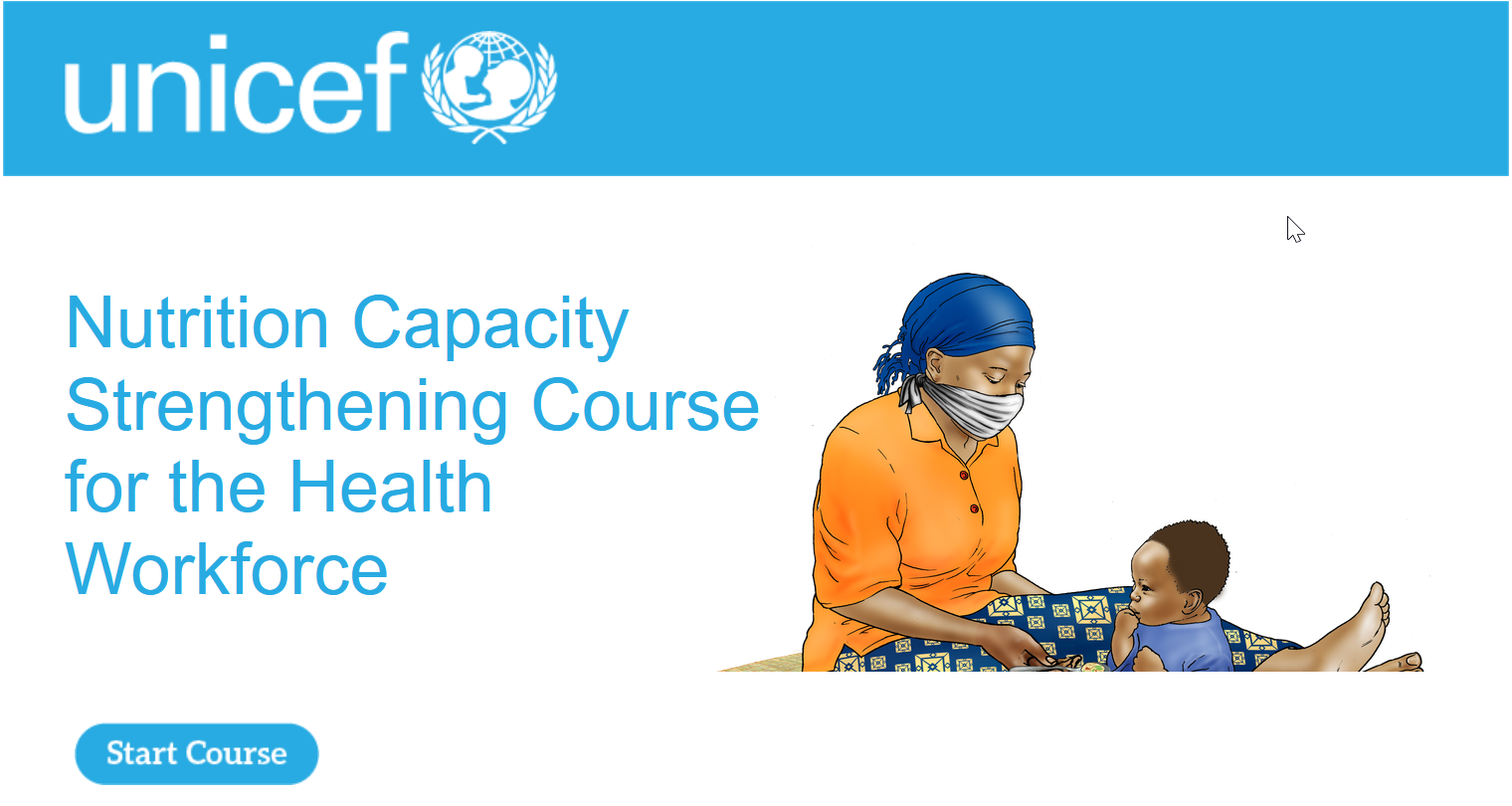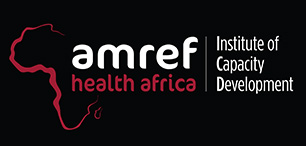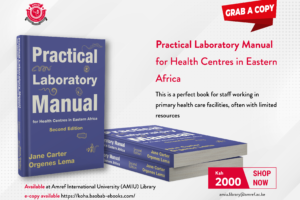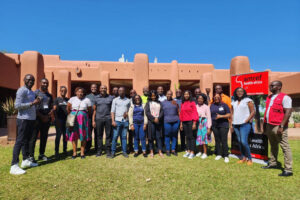
Utilising a Blended Approach in Enhancing the Capacity of Health Workers to Address Malnutrition: The Amref Health Africa and UNICEF-Approach
Without adequate action, the profound impact of the COVID-19 pandemic on early life nutrition could have intergenerational consequences on child growth and development as well as life-long impacts on education, chronic disease risks, and overall human capital formation.
The current COVID-19 situation has imposed new restrictions in our daily life and redefined the way health care is provided, both at the facility and community levels. As countries and governments move to curb the spread of Coronavirus infections by enforcing laws on partial or full national lockdowns, closing down businesses, markets, and restrictions on social gathering and public places, the resulting economic repercussions have led to a rise in food insecurity, a key precipitate to maternal and child malnutrition [1]. In addition to the pre-existing food insecurity and poor nutrition that LMICs[2] were already facing during the pre-COVID-19 period, there is a need for adequate food safety through the handling and safe preparation of food.
Use of Technology to Reach Scale on Health Workers with Nutrition Related Capacity
Owing to the COVID-19 pandemic, there has been a spike in the use of technological solutions to meet the increasing demand to deliver services across various sectors. This technological drive has been instrumental in the delivery of trainings in the health care sector – with digital learning being prioritised and embraced as a training solution over the traditional face-to-face learning. Technology has proved instrumental in malnutrition interventions. One of these approaches is seen through a partnership between the United Nations Children’s Fund (UNICEF) Eastern and Southern Africa Regional Office and the Amref Health Africa’s Institute of Capacity Development (ICD). This partnership saw the development of the Nutrition Capacity Strengthening Course for the Health Workforce deployed through a blended learning approach, which included virtual webinars and self-paced digital learning through Amref’s eCampus platform and UNICEF’s AGORA platform to complement the minimal face-to-face interactions. The deployment of the course through the approach was aimed at unpacking the course content to health care workers. The webinar presentations focused on Management of Acute Malnutrition (Wasting) and Infant and Young Child Feeding, both in the context of the COVID-19 pandemic.
The two-week course would serve as an introduction to prompt identification and management of severe acute malnutrition, with the aim of protecting, promoting and supporting optimal provision and utilisation of maternal, new born, child health and nutrition services towards achieving and sustaining desirable health and nutrition outcomes. Moreover, the course encompasses a session on guidance to provision of age-appropriate complementary foods and feeding of Infants and Young Children, and services related to maternal nutrition using all appropriate opportunities. This is geared towards ensuring continuation of key services while sustaining gains made in maternal and child nutrition.
Conclusion
Before the COVID-19 pandemic, an estimated 47 million children under 5 years were moderately or severely wasted, most of them living in sub-Saharan Africa and south Asia[3]. Malnutrition increases the risk of infectious diseases in infants and young children. With proper intervention measures put in place, such as building the capacity of health care workers in the management of acute malnutrition and Infant and Young Child Feeding in the context of COVID-19, the mortality rate from infectious diseases can be greatly reduced in the long-term.
For further information, please contact: [email protected].
Authors: Leticia Buluma (Amref ICD), Joyce Muthoni (Amref ICD), Joyce Murerwa (CoP – Nutrition, Technical Support Unit, HQ)
Contributors: Edna Osebe (Amref ICD), Marjorie Volege (UNICEF, ESARO)
[1] https://www.worldbank.org/en/topic/agriculture/brief/food-security-and-covid-19
[2] Low- and Middle-Income Countries
[3] Impacts of COVID-19 on childhood malnutrition and nutrition-related mortality Published Online July 27, 2020 https://www.thelancet.com/pdfs/journals/lancet/PIIS0140-6736(20)31647-0.pdf



